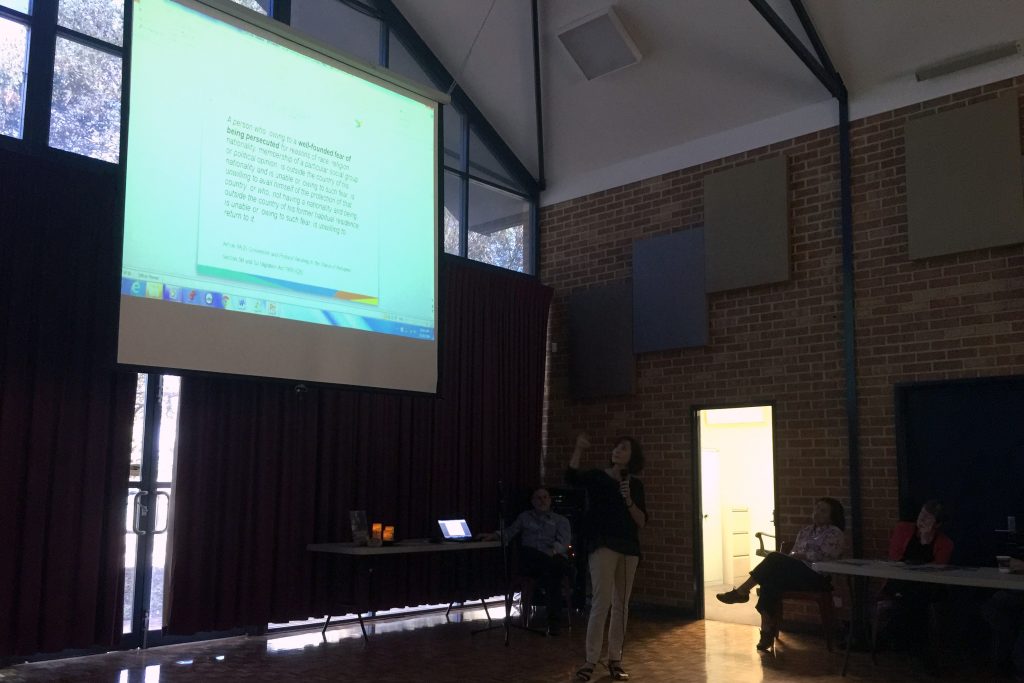
By Jamie O’Brien
The reality of the situation facing asylum seekers and refugees was front and centre at a recent forum co-ordinated by the Archdiocesan Catholic Alliance for Refugees.
Some 30 people from across Perth gathered on Saturday, 30 April at Our Lady of the Most Blessed Sacrament Gosnells Parish for the occasion, which featured Human Rights lawyer and CEO of the Humanitarian Group, Helen Pearce, as guest speaker.
The seminar was the second such event co-ordinated by the Catholic Alliance – currently working to develop a positive strategy in response to the recent refugee crises, and dedicated to a ground-up approach of education and discussion as a means of increasing the community’s participation and engagement around the issue of refugees.
Archdiocesan Manager of Catholic Service Development, Renay Grech, who co-ordinated the seminar, said it is paramount that all the facts, figures and information facing asylum seekers and refugees are laid bare so that an appropriate, fair and just response can be developed.
Mr Grech spoke about facts such as the tragedies in Syria, noting that the majority of people who apply for asylum seeker or refugee status do so because their lives and safety are under threat from war, violence or human rights abuses in their homeland.
“Many of those who arrive in such emergency situations do not wish to leave the homes, families, friends and communities that they know and love,” Mr Grech said.
“Unfortunately, the more war and conflict we see, the more people will move across the globe.
“For example, in 2013, the number of asylum seeker claims lodged around the world was the highest recorded in the past decade. This was due largely to the multiple conflicts that were taking place,” he said.
In presenting a number of key facts and figures about asylum seekers and refugees, Ms Pearce spoke about the legal battle that refugees and asylum seekers face when they arrive in Australia.
As part of her presentation, Ms Pearce explained in detail the various legal consequences depending on the method of arrival. These consequences depend on the specific date they arrived and whether they arrived by boat or plane.
Current statistics presented by Ms Pearce show that there is an estimated 2,000 people currently living in Western Australia who arrived by boat between August 2012 and December 2013.
And, in an effort to assist those who cannot afford legal assistance, the Humanitarian Group established the Temporary Protection Visa Project to provide free assistance, including
group information sessions across 10 language groups.
Ms Pearce went on to explain that Australia’s migration laws and policies change often – not just for people seeking protection, but for all visa applicants.
Examples of these changes include an increase to the Federal Minister’s personal power in determining the applicant’s character, the introduction of stricter character cancellation grounds, including mandatory cancellation, changes for visa applicants who provide bogus or counterfeit documents, and a new definition of (the term) refugee.
Members of the Alliance include representatives from Catholic agencies, including Australian Catholic Religious Against Trafficking in Humans, Justice and Ecology Development Office, St Vincent de Paul, Catholic Mission, Caritas, MercyCare and the Catholic Archdiocese.